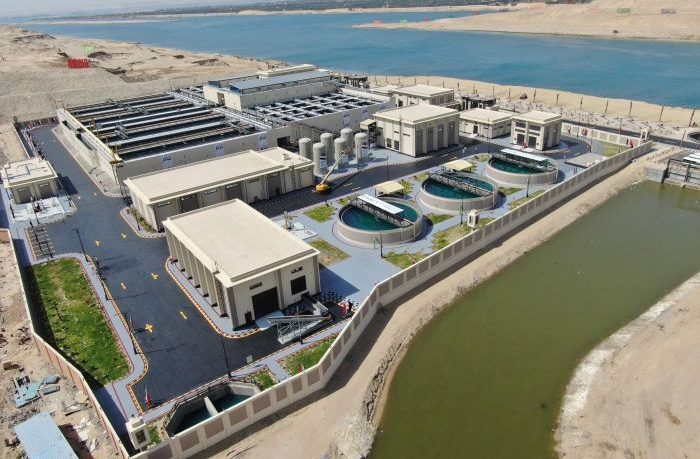- Permanent desalination is one of the proposed actions outlined in our Water Strategy to help build Cape Town’s future water supply.
- As part of this journey, the City of Cape Town and the Water Research Commission (WRC) has established an Independent Advisory Panel (IAP) to provide expert advice on the technical/scientific, socio-economic and regulatory aspects of desalination.
The City is investing in bringing the New Water Programme online, which will see an investment of about R5 billion over the next eight years. The City will introduce 300MLD of new water by 2030 from diverse sources, groundwater, reuse and desalination, that will help build a resilient future water supply in the face of future droughts.
Desalination compared to the other options is expensive, however, it has been identified as a drought-proof solution within the portfolio of water supply options, and if sustainably implemented, it can be instrumental in increasing the city’s resilience against future water crises.
The advice from the Independent Advisory Panel, together with input from stakeholders, will be valuable in making the final decision to implement desalination.
About the Independent Advisory Panel
The established IAP for Desalination was launched by the WRC and the City on 1 March 2023 and will be in place until 30 June 2024.
The IAP will review all the documentation, including the feasibility studies, project work plans and reports, associated with the implementation of desalination and consider stakeholder/public comments on these efforts.
Being experts in the implementation of desalination, the IAP brings valuable experiences and lessons from completed or ongoing desalination projects around the globe and in South Africa, and as such, the city is in a privileged position to receive the most informed recommendations.
The IAP comprises of 12 well-recognised professionals including scientists, engineers, public health and social science practitioners with extensive experience in the implementation of seawater desalination plants and associated processes nationally and internationally.
Going forward
‘The City has been investing into our New Water Programme so we can build our water resilience to navigate unpredictable climate change effects. It is vital to become less dependent on rain-fed dams so we are also investing in supply from various water sources such as groundwater, permanent desalination and reuse.
‘As part of this long-term process, the City of Cape Town is looking forward to the value the IAP will bring through their wide range of expertise, backgrounds and perspectives, on our journey to specifically look at permanent desalination as one of the options to diversify our water sources.
‘They are united by a shared vision of ensuring the sound decision-making and guidance towards the implementation of a Permanent Seawater Desalination Plant. The work of the panel on supporting the implementation of the Permanent Seawater Desalination Plant will be independently managed by the WRC with regular reporting to the City,’ said Councillor Zahid Badroodien, the City’s Mayoral Committee Member for Water and Sanitation.
About desalination:
- Desalination is the process of removing salt and minerals from seawater to produce clean, usable and drinkable water.
- The desalination process uses membranes with microscopic holes, which are an excellent barrier against impurities, such as bacteria and organics, that are sometimes present in seawater. Chlorine is also added to kill any bacteria that might be present in drinking water.
- The water will be tested according to the national drinking-water quality standard (SANS 241) throughout the desalination process to ensure it is safe to drink.
- The City learnt valuable lessons from its two temporary desalination plantsthat were decommissioned when their contracts ended, which will be used on its journey to consider permanent desalination.
See the Cape Towns’ water strategy HERE
Author: Bryan Groenendaal















